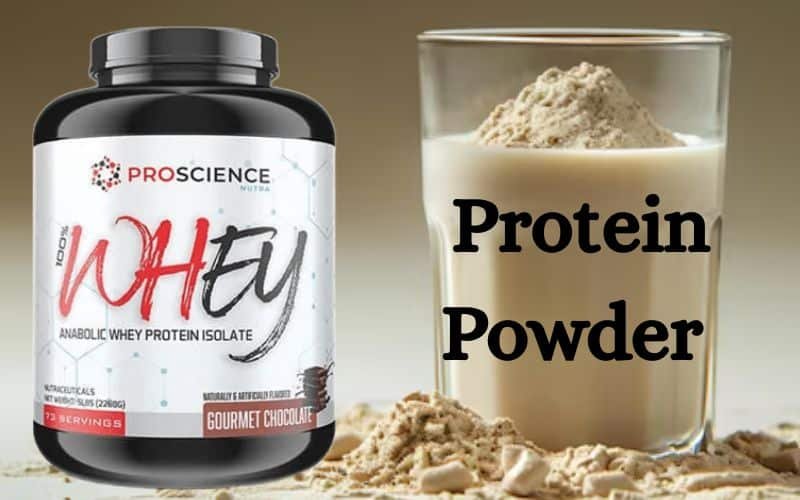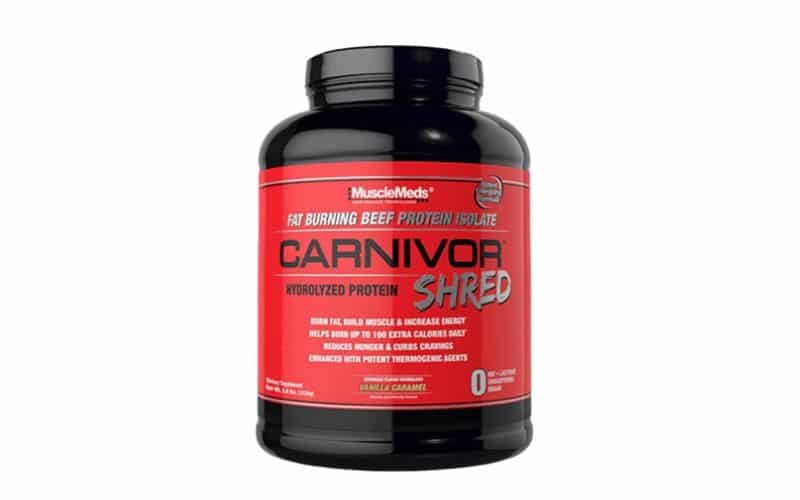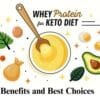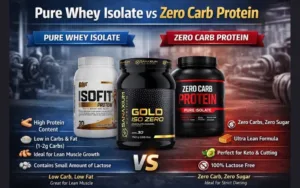No products in the cart.
Return To ShopWhy Protein Powder: Top Benefits for Health & Fitness
Protein powder has become a ubiquitous supplement in the health and fitness industry, appealing to athletes, bodybuilders, and even everyday individuals looking to augment their diet. But why is this powdered form of protein so popular?
Let’s delve into the reasons behind its widespread use and the benefits it offers. The convenience, efficiency, and variety of protein powder make it an indispensable addition to modern dietary practices. Understanding its role can help you make informed decisions about incorporating it into your routine.
Types of Protein Powder

There are various types of protein powder available, each catering to different dietary needs and preferences. The most common types include:
- Whey Protein: Derived from milk, it is a complete protein containing all nine essential amino acids. It’s quickly absorbed by the body, making it ideal for post-workout recovery. This rapid absorption is crucial for muscle repair and growth, providing an immediate supply of amino acids right when your body needs them most. Additionally, whey protein is known for its high leucine content, an amino acid critical for muscle protein synthesis.
- Casein Protein: Also milk-derived, this protein is digested more slowly, providing a sustained release of amino acids. This prolonged digestion process makes it perfect for nighttime consumption, ensuring that your muscles receive a steady supply of nutrients throughout the night. Casein helps prevent muscle breakdown and supports recovery and growth during periods of fasting, such as sleep.
- Plant-Based Proteins: Options like soy, pea, hemp, and brown rice protein cater to vegetarians and vegans. They are often blended to ensure a complete amino acid profile. These plant-based options are not only suitable for those avoiding animal products but also offer additional health benefits, such as being rich in fiber and antioxidants. They are typically easier to digest and are hypoallergenic, making them suitable for individuals with dietary sensitivities.
- Egg White Protein: A high-quality, lactose-free option with a high biological value. Egg white protein is known for its excellent amino acid profile and digestibility, making it a top choice for those with lactose intolerance or dairy allergies. It provides a clean, lean source of protein without the fats and cholesterol found in whole eggs, supporting muscle maintenance and growth effectively.
Each type has unique properties that make it suitable for different goals and dietary restrictions, ensuring that everyone can find a protein powder that aligns with their nutritional needs and lifestyle preferences.
Boost muscle growth, recovery, and overall health with protein powder

Why Protein Powder
Protein powder is popular for its convenience and nutritional benefits. It offers a quick and efficient way to meet daily protein needs, aiding in muscle recovery and growth. With various types available, it caters to different dietary preferences and restrictions, making it versatile for everyone.
Nutritional Benefits
Protein powder is rich in essential amino acids, which are the building blocks of muscles, tissues, and enzymes. Regular consumption can aid in:
- Muscle Repair: Facilitates the repair of muscle tissues post-exercise, ensuring quicker recovery and less downtime.
- Immune Support: Certain amino acids play crucial roles in immune function, helping to strengthen the body’s defense mechanisms against illnesses.
- Enzyme and Hormone Production: Essential for various biochemical processes in the body, including metabolic and regulatory functions.
Moreover, protein powder often contains additional nutrients like vitamins, minerals, and sometimes fiber, enhancing its overall nutritional profile. This makes it a comprehensive supplement that supports overall health and well-being, beyond just muscle growth.
Children and Teenagers
Growing bodies require ample protein for the development of tissues, muscles, and hormones. While whole foods should be the primary source, protein powder can support active children or picky eaters when used under supervision.
Adults
For adults, protein helps preserve muscle mass, support metabolic function, and maintain energy levels. Protein powders offer a convenient option for busy individuals who may struggle to meet their daily protein needs through food alone.
Seniors
As people age, muscle loss (sarcopenia) becomes a concern. Protein powder can help older adults maintain muscle strength and function, especially when paired with resistance exercise.
Pregnant and Lactating Women
During pregnancy and breastfeeding, protein needs increase to support fetal development and milk production. With a doctor’s approval, high-quality protein powders can be a safe way to ensure adequate intake without excessive calories.
Role in Muscle Recovery and Growth

Protein powder is crucial for those engaged in regular physical activity. It aids in muscle recovery and promotes growth by:
- Accelerating Muscle Repair: Post-workout protein intake helps repair muscle fibers damaged during exercise, reducing recovery time and enhancing performance.
- Enhancing Muscle Synthesis: Provides the necessary amino acids to build new muscle tissues, supporting muscle growth and strength.
- Reducing Muscle Soreness: Can help mitigate delayed onset muscle soreness (DOMS), allowing for more consistent training and less discomfort after intense workouts.
These benefits make protein powder an invaluable supplement for athletes, bodybuilders, and anyone involved in regular physical activity, ensuring optimal muscle health and performance.
Weight Management
Protein powder can be an effective tool in weight management. It helps in:
- Appetite Regulation: High protein intake can increase satiety, reducing overall calorie consumption. Protein slows down digestion and influences the release of appetite-regulating hormones such as ghrelin and GLP-1, helping you feel fuller for longer and curbing unnecessary snacking or overeating.
- Muscle Preservation: During weight loss, it helps preserve lean muscle mass, ensuring that weight loss is primarily from fat. Maintaining muscle mass is crucial as it helps sustain a higher metabolic rate, making it easier to keep the weight off once it’s lost. Lean muscle mass also contributes to a toned appearance and overall physical strength.
- Metabolic Boost: Protein has a higher thermic effect compared to fats and carbohydrates, meaning it requires more energy for digestion. This increased energy expenditure can slightly boost your metabolism, aiding in more efficient calorie burning throughout the day. Additionally, the muscle-building properties of protein contribute to a higher resting metabolic rate, further supporting weight management efforts.
These properties make protein powder a beneficial addition to a weight loss or maintenance regimen, providing not only nutritional support but also contributing to the overall effectiveness and sustainability of a healthy diet and exercise plan.
Addressing Dietary Restrictions
For those with dietary restrictions, protein powder offers tailored solutions. For example:
- Lactose-Free Options: Plant-based or egg white protein powders are excellent for those who are lactose intolerant. These alternatives provide high-quality protein without the digestive discomfort associated with dairy-based products. They are also often enriched with additional nutrients to support overall health.
- Vegan Proteins: Soy, pea, hemp, and rice proteins cater to vegans and vegetarians, ensuring they can meet their protein needs without compromising their dietary principles. These plant-based proteins are not only sustainable but also come with their own set of health benefits, including being rich in fiber and phytonutrients that support overall well-being.
- Allergen-Free: Options are available free from common allergens like gluten, soy, and dairy. This inclusivity ensures that everyone, regardless of their dietary restrictions or allergies, can find a suitable protein supplement. Many of these allergen-free proteins are also hypoallergenic, making them suitable for those with sensitive digestive systems or multiple food intolerances.
This inclusivity ensures that everyone can find a suitable protein supplement, promoting better health and nutrition across diverse dietary needs and lifestyles.
Quality and Sourcing
The quality of protein powder can vary significantly. Key considerations include:
- Source of Protein: Opt for powders derived from high-quality sources like grass-fed cows or organic plants. High-quality sources ensure that the protein is free from harmful chemicals, antibiotics, and hormones, providing a cleaner and more nutritious product. Grass-fed and organic sources also tend to have better nutrient profiles, including higher levels of beneficial fatty acids and antioxidants.
- Processing Methods: Minimal processing is preferable to retain the natural integrity of the protein. Overly processed protein powders can lose valuable nutrients and may contain harmful additives. Cold-processed or raw protein powders, for example, retain more of the original nutrients and are often easier for the body to assimilate.
- Additives: Beware of added sugars, artificial flavors, and preservatives. These additives can detract from the health benefits of the protein powder, adding unnecessary calories and potentially harmful substances to your diet. Always check the ingredient list for clean, simple, and recognizable ingredients.
Choosing a high-quality protein powder ensures maximum benefits without unwanted additives, supporting overall health and aligning with clean eating principles. Investing in a reputable brand and thoroughly reading product labels can help you make informed choices and select the best protein powder for your needs.
Protein Timing and Consumption Strategies

When you consume protein can be just as important as how much you consume, especially for those aiming to build muscle, recover faster, or support overall health. Strategic timing optimizes the body’s ability to absorb and utilize protein efficiently.
Pre-Workout
Consuming protein before a workout provides the body with a supply of amino acids that can be used during exercise. This may help reduce muscle breakdown and enhance performance, particularly during resistance or endurance training.
Post-Workout
This is arguably the most important window for protein consumption. Within 30–60 minutes after exercising, muscles are primed to absorb nutrients. A fast-digesting protein like whey delivers amino acids quickly to muscles, accelerating repair and stimulating muscle protein synthesis.
Before Bed
A slow-digesting protein like casein is ideal before sleep, as it provides a steady release of amino acids throughout the night. This helps reduce muscle breakdown during the body’s fasting period and supports overnight recovery and growth.
Between Meals or on the Go
Protein powder is a practical way to maintain consistent protein intake throughout the day. A mid-morning or afternoon protein shake can help curb hunger and stabilize blood sugar levels.
Timing your protein intake around these strategic points in the day can significantly improve workout results, recovery efficiency, and even body composition.
Environmental and Ethical Considerations

In today’s health-conscious and eco-aware world, consumers increasingly weigh the ethical and environmental implications of their dietary choices. Protein powders are no exception.
Animal vs. Plant-Based Impact
Animal-derived proteins like whey and casein are byproducts of dairy, which has a significant environmental footprint. In contrast, plant-based proteins—such as pea, hemp, and rice—tend to be more sustainable, requiring less water and producing fewer emissions.
Ethical Sourcing
Consumers are also demanding ethically sourced ingredients. Protein powders labeled as “grass-fed,” “organic,” or “non-GMO” often signal better practices regarding animal welfare and environmental stewardship.
Packaging and Manufacturing
Eco-friendly packaging and clean manufacturing processes also play a role in the sustainability of protein powder products. Brands that reduce plastic waste and carbon emissions are gaining popularity among environmentally conscious buyers.
These considerations are shaping the future of the supplement industry, empowering users to choose protein powders that align not only with their health goals but also their values.
Cost-Effectiveness and Accessibility
Protein powder is not just a nutritional supplement—it can be an economical and practical choice for many. Evaluating cost per serving and nutritional density reveals its value compared to whole food options.
Per-Serving Cost
A typical scoop of protein powder delivers 20–30 grams of protein, often costing less per gram than animal sources like chicken breast or salmon. This makes it a budget-friendly option for people looking to increase protein intake efficiently.
Storage and Shelf Life
Protein powder is shelf-stable, requiring no refrigeration and having a long expiration date. This adds to its cost-effectiveness and makes it suitable for stocking in bulk, especially in areas with limited access to fresh protein-rich foods.
Accessibility in Low-Resource Areas
In regions where quality protein sources are limited, protein powders provide a reliable alternative. Ready-to-mix powders are easy to transport, prepare, and consume, contributing to improved nutrition in underserved populations.
Considering both affordability and practicality, protein powder offers a powerful blend of nutritional density and convenience.
Innovative Uses of Protein Powder
Beyond the classic shake, protein powder has evolved into a versatile ingredient that can enrich a wide variety of recipes. This flexibility enhances both nutrition and creativity in the kitchen.
Protein-Enhanced Baked Goods
Add protein powder to pancakes, muffins, or banana bread to boost protein without affecting texture or flavor. Many recipes are specifically designed to incorporate whey or plant-based proteins as flour substitutes.
Savory Dishes
Unflavored protein powders can be mixed into soups, stews, or mashed potatoes for a subtle protein boost that blends seamlessly with other ingredients.
Homemade Protein Snacks
Make your own protein bars, energy bites, or protein-packed granola using natural ingredients like oats, nut butters, and dried fruits. This allows you to control sugar and additive levels while customizing taste and macros.
Dairy-Free Creamers or Smoothie Bowls
Protein powder can also be used in smoothie bowls, frozen desserts, or non-dairy creamer alternatives for coffee, enhancing both flavor and nutritional profile.
These creative uses show that protein powder isn’t just for gym-goers—it’s a kitchen staple for anyone seeking balanced nutrition in a convenient, customizable form
Potential Side Effects and Considerations

While protein powder is generally safe, there are potential side effects and considerations:
- Digestive Issues: Some individuals may experience bloating, gas, or stomach cramps.
- Kidney Function: Excessive protein intake can strain the kidneys, especially in individuals with pre-existing conditions.
- Allergies: Always check for potential allergens.
It’s essential to use protein powder as part of a balanced diet and consult with a healthcare professional if unsure.
Conclusion
Protein powder offers a convenient, versatile, and efficient way to meet daily protein needs. Whether for muscle recovery, weight management, or addressing dietary restrictions, it provides numerous benefits. However, choosing a high-quality product and using it appropriately is crucial to reap its full advantages. Embrace the power of protein powder to enhance your overall health and wellness.









Add comment